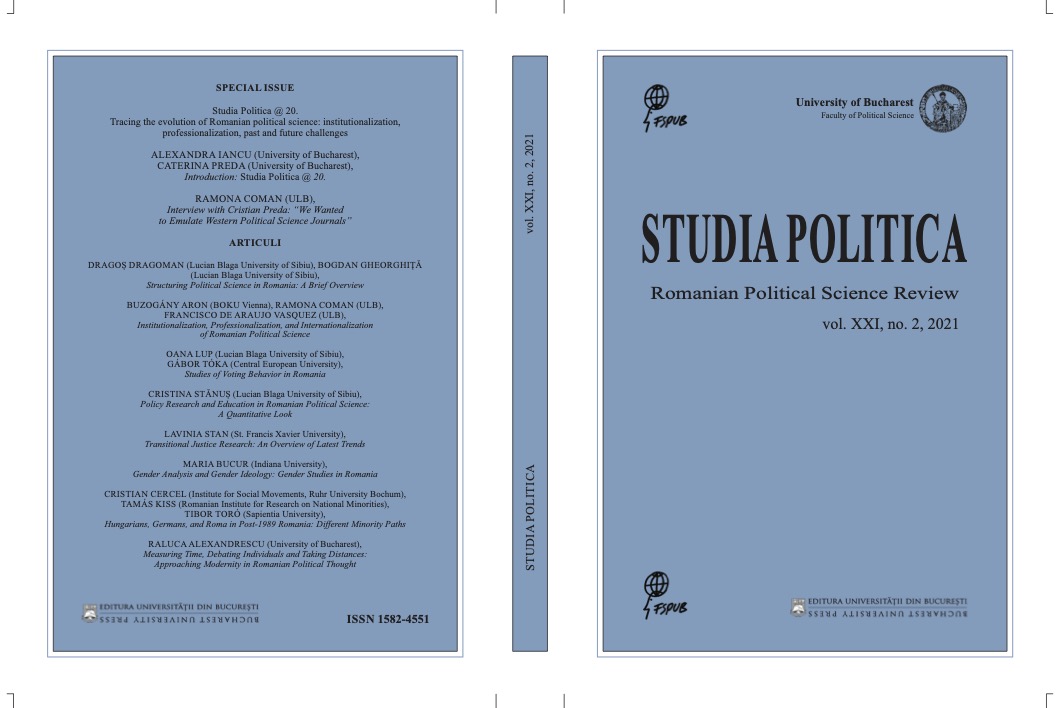Hungarians, Germans, and Roma in Post-1989 Romania: Different Minority Paths
Hungarians, Germans, and Roma in Post-1989 Romania: Different Minority Paths
Author(s): Cristian Cercel, Tibor Toró, Tamás KissSubject(s): Politics / Political Sciences, Recent History (1900 till today), Demography and human biology, Migration Studies, Ethnic Minorities Studies
Published by: Editura Universităţii din Bucureşti
Keywords: minority politics; Romania; Hungarians; Germans; Roma;
Summary/Abstract: This article is an overview of post-1989 Romanian minority politics, with a comparative focus on three national minorities (the Hungarians, the Germans, and the Roma). It uses a broad array of secondary sources and scrutinizes the following aspects: 1) the situation of the three minorities when state socialism dissolved; 2) the scholarship focusing on minorities; 3) demography and issues of identification and migration; 4) political mobilization, identity politics, and claim-making; 5) kin-state politics; 6) Europeanization, and 7) social status and the place of these minorities within the Romanian political community. The contribution makes two main arguments: 1) that despite the unitary formal framework of Romanian minority politics, the three minority groups in Romania stand for different paths as regards minority politics and 2) that these paths and the post-1989 development of Romanian minority politics in general ought to be looked at from a perspective decidedly emphasizing its transnationalism. In providing this overview, the article implicitly teases out questions with respect to the evolution of scholarship (both from the disciplinary field of political science, but also beyond it) on Romanian minority politics over the past three decades, as well as with respect to the challenges that this scholarship needs to address.
Journal: Studia Politica. Romanian Political Science Review
- Issue Year: 21/2021
- Issue No: 2
- Page Range: 409-438
- Page Count: 30
- Language: English

